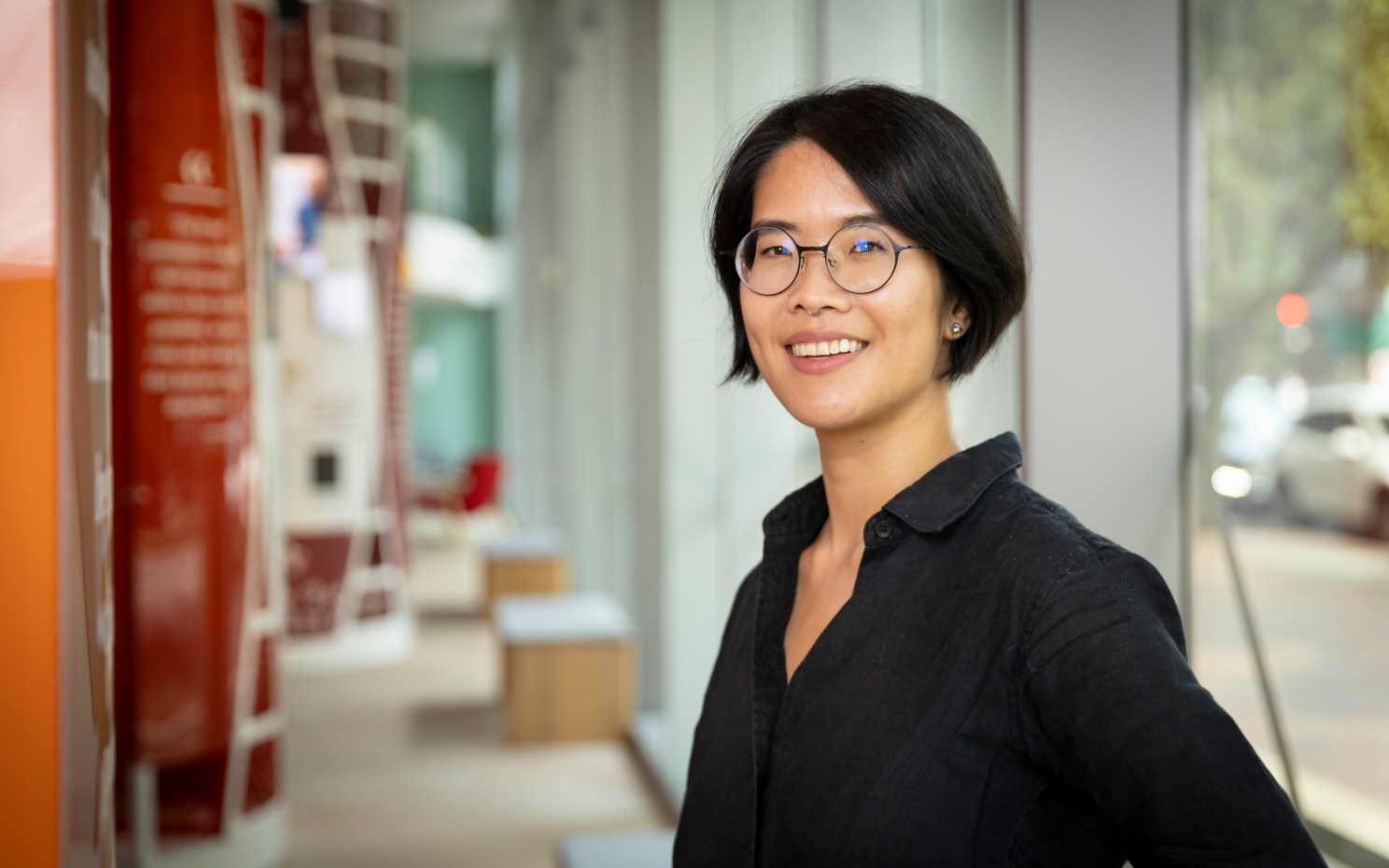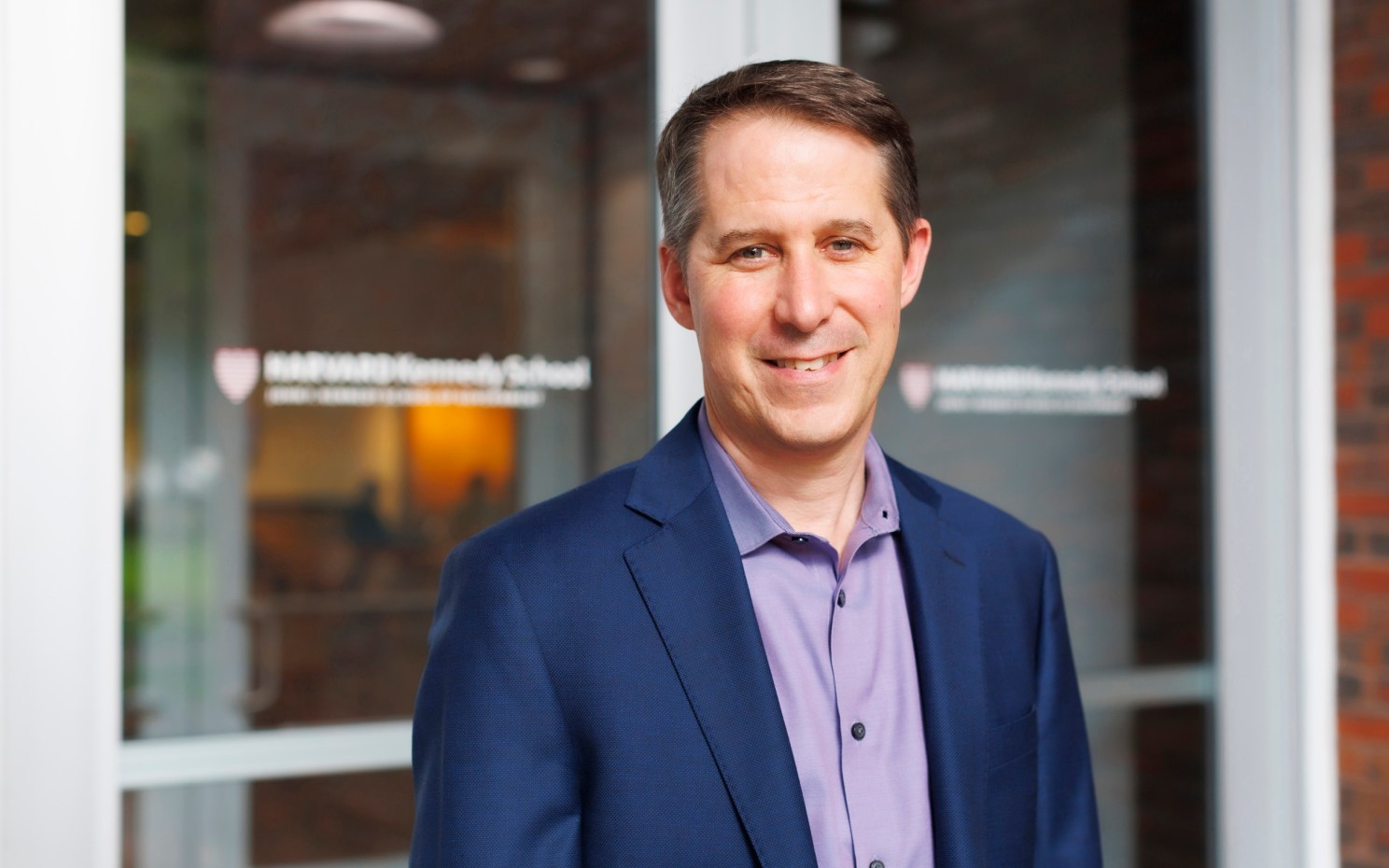
Photos by Stephanie Mitchell/Harvard Staff Photographer
Car bombing in Pakistan nearly took her father’s life — and changed hers
Mashail Malik was always interested in human experience. At first it took her to literature, philosophy but now her focus is ethnic, identity politics
On a June evening in 2009, militants detonated a car bomb packed with more than 1,000 pounds of explosives near the Pearl Continental Hotel in Peshawar, Pakistan, killing 17 and injuring nearly 50. The terrorist operation came in response to a government offensive against an offshoot of the Taliban and added to the spiral of political violence that has engulfed the region since the 2001 U.S. invasion of Afghanistan.
The bombing also changed the life path of Mashail Malik, assistant professor in the Department of Government, whose father was nearly killed in the blast. Malik was back home in Islamabad, after her freshman year at Beloit College. Her father was badly injured, but to keep everybody calm, he recited poetry through the three-hour ride from Peshawar to a hospital in Islamabad.
Growing up, Malik was enthralled by literature and philosophy, but after the attack felt a need to learn more about terrorism and the forces behind people’s willingness to kill or be killed for political beliefs. Her interest set her on the path toward political science.
“My first love was fiction; my second was philosophy. But both of those things are in some ways divorced from the real world,” Malik said on a recent afternoon at her office in the Center for Government and International Studies building on Cambridge Street.
“As a child, I was always made fun of as the person who always had her nose in a book and was disconnected from reality in some ways. The attack forced me to engage with ‘the real world.’ Political science allows me to do that and helps me focus on ethical issues in ways that are fascinating.”
“At the end of the day, all the things that I’ve loved, whether it’s fiction, philosophy, or political psychology, all of it is an attempt to understand the human experience.”

After graduating from Beloit College with a B.A. in philosophy and economics and management and a minor in political science, Malik’s interest in the study of violence took her to the University of Chicago, where she received a master’s degree in international relations, and to Stanford University, where she graduated with a Ph.D. in political science.
While in graduate school, Malik grew disillusioned with the tendency she found there to study terrorism largely through the filter of U.S. national security interests. In particular, what she saw as the singular focus on terrorism and nuclear weapons in Pakistan dimmed her interest in the study of political violence. She also found the topic elusive because it was difficult to obtain hard data on what pushes people to join terrorist groups.
“We can theorize and find a lot of evidence for why people oppose foreign forces,” said Malik, “but when that opposition turns into extreme violence of the variety we see, at the individual’s psychological level it’s hard to explain because where would we even get the data? The people who do it are often gone.”
While trying to research political violence, Malik became interested in issues surrounding voting, governance, and identity politics. She now studies the political psychology of identity, with a focus on ethnicity, immigration, and internal migration.
It is a burgeoning field of research. In the past, social scientists considered ethnicity fixed and immutable, but now it’s widely accepted that ethnicity is quite fluid and how it manifests itself depends on social environment. Social and political forces, such as violence and discrimination, shape ethnic identity, which in turn influences politics.
Malik’s research is structured around ethnic politics and identity politics, “thorny issues” that are important challenges for today’s society and the academy in general, said Melani Cammett, Clarence Dillon Professor of International Affairs, Department of Government, and director of the Weatherhead Center for International Affairs.
“What’s really interesting about Mashail’s work is that she looks at the nature of identity in terms of what identity means and how people value identity in and of itself,” said Cammett. “That’s an important frontier in research because a lot of times it gets very tangled up in class and material interests. Her work contributes to disentangling the material dimensions of identity from the communal dimensions of identity.”
Malik, who began teaching at Harvard in the fall of 2022, is working on a book on the rise and fall of ethnic parties in Karachi, Pakistan. She is currently teaching an upper-level seminar on ethnic and identity politics and managing a political economy workshop.
Looking back at her decision to switch away from philosophy, Malik said political science offered the best of both worlds because she could still focus on ethical questions in decision-making.
“I’m very much a political psychologist now,” said Malik. “I look at people’s motivations, their behaviors, their identities. At the end of the day, all the things that I’ve loved, whether it’s fiction, philosophy, or political psychology, all of it is an attempt to understand the human experience.”









